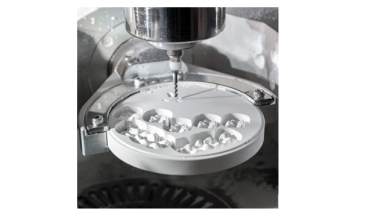Blood in Stool and IBS: Understanding the Connection and What to Do

Irritable Bowel Syndrome (IBS) is a chronic gastrointestinal disorder characterized by a range of symptoms, including abdominal pain, bloating, and changes in bowel habits. While IBS typically does not involve visible bleeding, some individuals with IBS may notice blood in their stools. This occurrence can be alarming and confusing, as it raises questions about the potential causes and implications. In this comprehensive guide, we will explore the connection between blood in the stool and IBS, discuss possible reasons for this symptom, and outline what individuals experiencing this should do.
Is Blood in Stool Common in IBS?
Blood in the stool is not a common or typical symptom of IBS. IBS is primarily characterized by symptoms like abdominal pain, bloating, and changes in bowel habits, such as diarrhea, constipation, or an alternating pattern of both. These symptoms are often related to disturbances in gut motility, sensitivity to pain, and other functional aspects of the digestive system. Visible blood in the stool is more commonly associated with other gastrointestinal conditions, such as inflammatory bowel disease (IBD), hemorrhoids, or gastrointestinal bleeding.
Possible Causes of Blood in Stool in IBS
While blood in the stool is not a hallmark symptom of IBS, there are several potential reasons why it might occur in individuals with IBS:
- Hemorrhoids: Hemorrhoids are swollen blood vessels in the rectum or anus, and they can bleed when irritated or during bowel movements. Individuals with IBS may experience hemorrhoids due to straining during constipation or diarrhea.
- Anal Fissures: Anal fissures are small tears in the lining of the anus, often caused by passing hard stools. Straining during bowel movements, which can be common in IBS, may contribute to the development of anal fissures.
- Gastrointestinal Bleeding: While less common, IBS does not preclude the possibility of other gastrointestinal issues, such as bleeding ulcers or vascular abnormalities. These conditions can sometimes coexist with IBS and lead to visible blood in the stool.
- Dietary Factors: Some foods or substances, like spicy foods, alcohol, or excessive caffeine, can irritate the digestive tract and potentially lead to gastrointestinal bleeding.
What to Do if You Notice Blood in Your Stool
If you have IBS and notice blood in your stool, it is essential not to ignore it. While IBS itself is generally considered a functional disorder without structural damage to the digestive tract, the presence of blood warrants further evaluation. Here are steps to take:
- Consult a Healthcare Provider: Reach out to a healthcare provider, such as a gastroenterologist or primary care physician, to discuss your symptoms. They will conduct a thorough evaluation to determine the cause of the bleeding.
- Provide a Detailed History: Be prepared to provide a detailed medical history, including information about your IBS symptoms, any recent dietary changes, and the duration and frequency of the blood in your stool.
- Physical Examination: Your healthcare provider may perform a physical examination, which can help identify any external factors contributing to the bleeding, such as hemorrhoids or anal fissures.
- Diagnostic Tests: Depending on your symptoms and medical history, your healthcare provider may recommend diagnostic tests, which can include stool tests, colonoscopy, endoscopy, or imaging studies. These tests can help identify the source of the bleeding and rule out more serious conditions like colorectal cancer.
Treatment and Management
The treatment and management of blood in the stool associated with IBS depend on the underlying cause. If the bleeding is due to hemorrhoids or anal fissures, treatment may involve dietary modifications to promote softer stools, topical medications, and lifestyle changes to reduce straining during bowel movements.
In cases where gastrointestinal bleeding is suspected, further evaluation and treatment will be necessary to address the underlying condition. This may involve medications to manage inflammation or bleeding ulcers, lifestyle changes, or, in some cases, surgical interventions.
Preventing Blood in Stool in IBS
To minimize the risk of developing blood in the stool when you have IBS, consider the following preventive measures:
- Fiber-Rich Diet: Consuming a diet rich in fiber can help regulate bowel movements and prevent constipation, reducing the likelihood of straining.
- Hydration: Staying adequately hydrated can soften stools and ease bowel movements.
- Stress Management: Techniques such as relaxation exercises, meditation, or yoga can help reduce stress, which can exacerbate IBS symptoms and contribute to straining.
- Avoid Trigger Foods: Identify and avoid foods or substances that exacerbate your IBS symptoms, as these can lead to irritation and straining during bowel movements.
Conclusion
While blood in the stool is not a common symptom of IBS, it can occur due to various factors, including hemorrhoids, anal fissures, dietary factors, or, rarely, other gastrointestinal conditions. If you experience blood in your stool, it is essential to consult a healthcare provider for a thorough evaluation and appropriate management. Prompt diagnosis and treatment can help address the underlying cause and ensure your digestive health is properly managed, whether you have IBS or another gastrointestinal condition.





